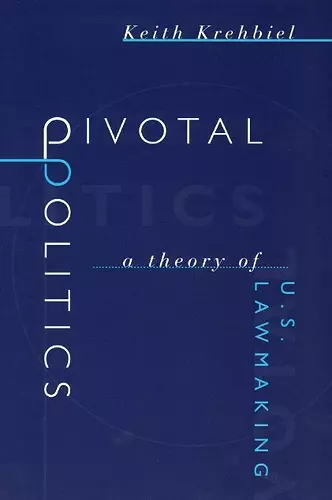Pivotal Politics – A Theory of U.S. Lawmaking
Format:Paperback
Publisher:The University of Chicago Press
Published:11th Jun '98
Currently unavailable, and unfortunately no date known when it will be back

Keith Krehbiel received the American Political Science Associatin's Fenno Prize for best book on legislative politics for his book "Information and Legislative Organization"
A study of American lawmaking showing that political parties are less important in legislative-executive politics than is commonly thought. The book argues that divided government has little effect on legislative productivity as gridlock occurs even in united legislative-executive governments.Politicians and pundits alike have complained that the divided governments of the last decades have led to a legislative gridlock. The author argues against this, advancing the theory that divided government actually has little effect on legislative productivity. Gridlock is in fact the order of the day, occurring even when the same party controls the legislative and executive branches. Anchored to real politics, the author argues that the pivotal vote on a piece of legislation is not the one that gives a bill simple majority, but the vote that allows its supporters to override a possible presidential veto. This theory of pivots also explains why, when bills are passed, winning coalitions usually are bipartisan and supermajority sized. Offering an account of when gridlock is overcome and showing that political parties are less important in legislative-executive politics than previously thought, this text offers a perspective on American lawmaking.
ISBN: 9780226452722
Dimensions: 228mm x 164mm x 17mm
Weight: 580g
274 pages